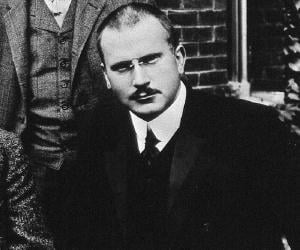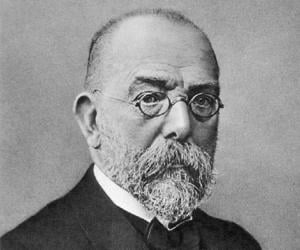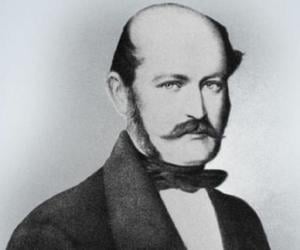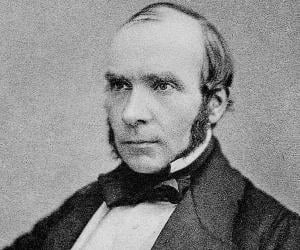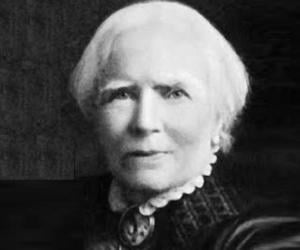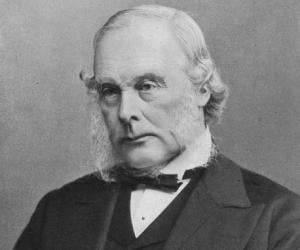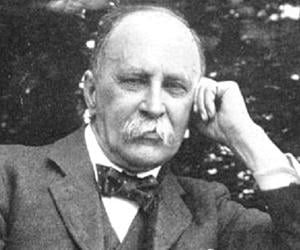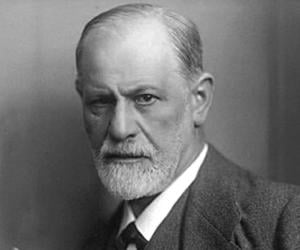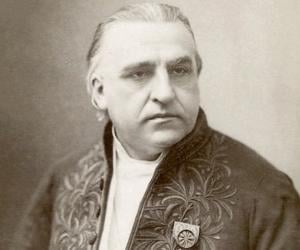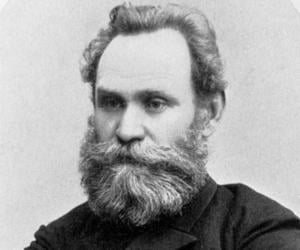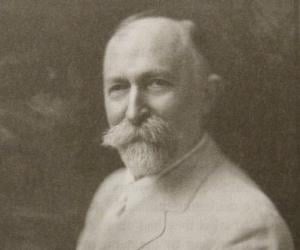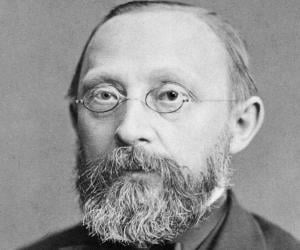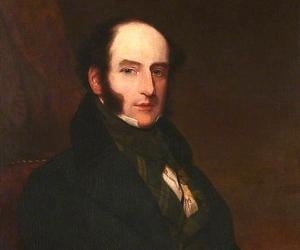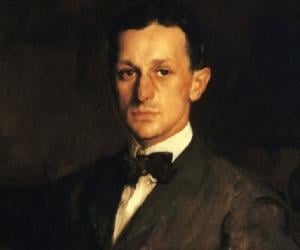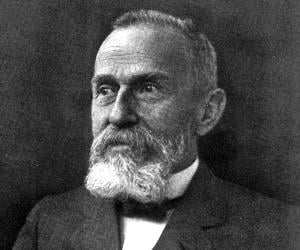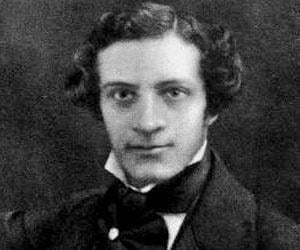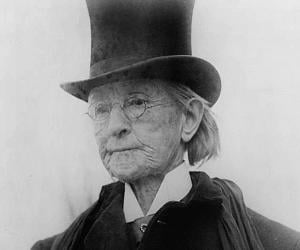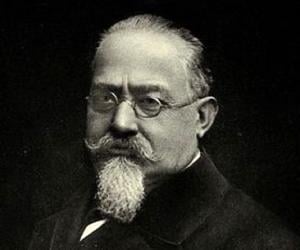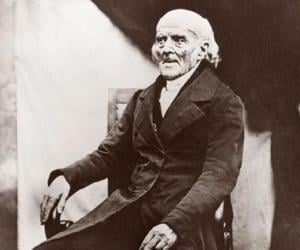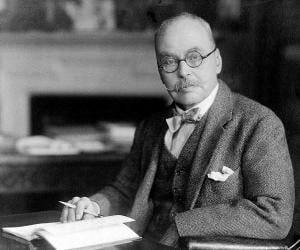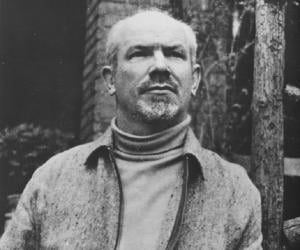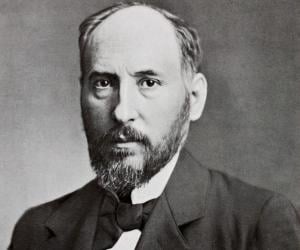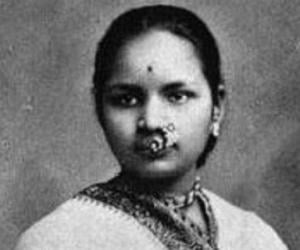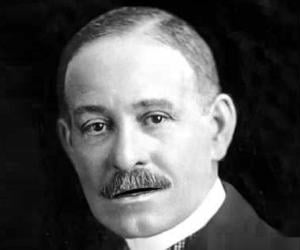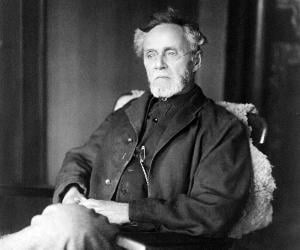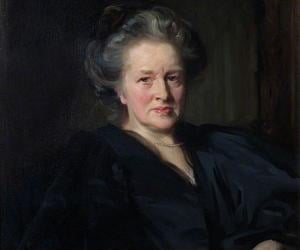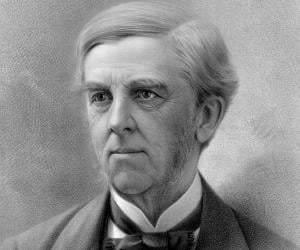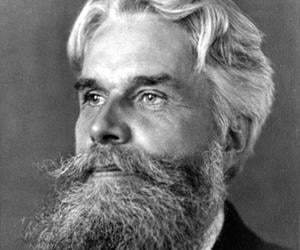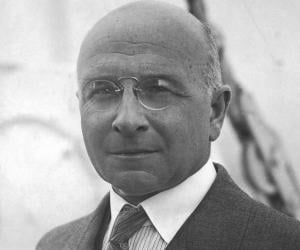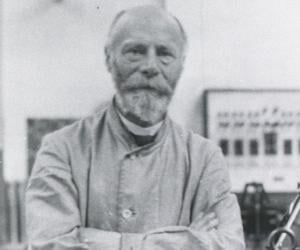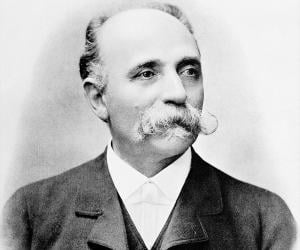Widely regarded as the father of analytical psychology, Carl Jung is one of the most important contributors to symbolization and dream analysis. The concepts of socionics and a popular psychometric instrument called Myers-Briggs Type Indicator (MBTI) were developed from Jung's theory. Apart from working as a psychiatrist and psychoanalyst, Carl Jung was also an artist, craftsman, builder, and prolific writer.
Robert Koch was a German microbiologist and physician. One of the prominent co-founders of modern bacteriology, Koch is credited with creating and improving laboratory techniques and technologies in the field of microbiology. He is also credited with making important discoveries in public health. In 1905, Robert Koch won the Nobel Prize in Physiology or Medicine for his research on tuberculosis.
Almost 2 decades before germ theory was laid down, Ignaz Semmelweis became the first physician to suggest that hand-washing could prevent the spread of puerperal fever and related deaths. Ironically, after being ridiculed for his theory, he died in a mental asylum, due to an infection from a wound.
Best known as the father of modern epidemiology, British doctor John Snow revolutionized medical science with his study of London’s Broad Street cholera outbreak of 1854. His research contributed to the development of London’s sewage and water systems and led to the reduction in cholera cases.
British surgeon Joseph Lister was a pioneer of antiseptic medicine usage and made a huge contribution to the development of preventive medicine for bacterial infection. His achievements have been honored by many, such as the makers of Listerine antiseptic and mouthwash, who named their product after him.
Johns Hopkins Hospital co-founder William Osler was also an avid historian. He redefined medical education with his emphasis on clinical experience and his book The Principles and Practice of Medicine. Born to a missionary father in Canada, he was to follow in his father’s footsteps but decided to study medicine instead.
Regarded as the father of psychoanalysis, Sigmund Freud was a neurologist. Despite suffering criticism, psychoanalysis remains influential in the fields of psychology and psychiatry; such is the influence Freud has on humanities. Scholars believe that Freud is one of the most influential personalities of the 20th century and that his impact is comparable to that of Marxism and Darwinism.
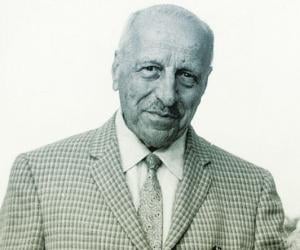
Georgios Papanikolaou was a Greek physician who was a pioneer in early cancer detection. He reported that uterine cancer cells could be detected in vaginal smears as early as 1928, but his work did not receive much attention until the 1940s. He invented the Papanicolaou test, commonly known as the Pap smear or Pap test for cervical screening.
Rudolf Virchow was a German physician, pathologist, anthropologist, biologist, prehistorian, editor, writer, and politician. Nicknamed the Pope of medicine by his colleagues, Virchow is credited with founding the field of social medicine. He is also widely regarded as the father of modern pathology. Rudolf Virchow was the first person to name diseases, such as thrombosis, leukemia, ochronosis, embolism, and chordoma.
Scottish surgeon Robert Liston worked in an era when anesthesia wasn’t invented. He could complete amputations within minutes, thus saving the lives of many when the speed of the surgery made the difference between life and death. Later, he became the first European surgeon to operate under anesthesia.
The son of a musician, Emil Kraepelin, remembered as the founder of psychiatry, was the first to differentiate between dementia praecox, now known as schizophrenia, and manic-depressive psychosis. His classification of mental illnesses influenced much of the research on the subject in the 20th century.
Best known for his iconic medical textbook Gray's Anatomy, surgeon Henry Gray, who was a skilled anatomist, was made a Fellow of The Royal Society at the tender age of 25. His untimely death at 34 due to small pox, while treating his nephew, cheated him of an illustrious career.
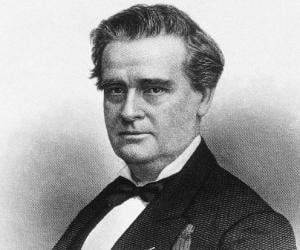
Known as The Father of Modern Gynaecology, J. Marion Sims is remembered for developing a surgical method to deal with vesicovaginal fistula, a childbirth-related complication. However, since his experiments were conducted on Black slave-women, without anesthesia, they were later deemed unethical. He had also headed the American Gynecological Society.
Mary Edwards Walker, or Dr. Mary Walker, was the only female surgeon who served injured soldiers during the American Civil War. A dress reform supporter, she believed women should value comfort more than tradition when it came to clothes. She was also the first and only Medal of Honor winner.
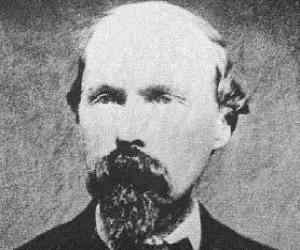
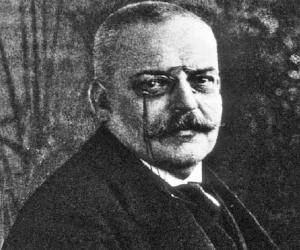
German psychiatrist and neuropathologist Alois Alzheimer is noted for identifying the first published case of presenile dementia, which his colleague and German psychiatrist Emil Kraepelin later identified as Alzheimer's disease. Alois publicly discussed his findings on brain pathology and symptoms of presenile dementia in late-1906 and penned a larger paper giving details of the disease and his findings in 1907.
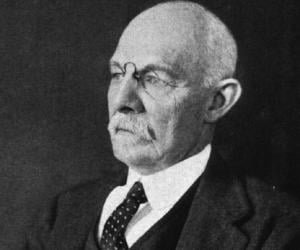
William Stewart Halsted was the man behind the first American surgical school at the Johns Hopkins University. The master surgeon made a number of contributions to medical science, including the introduction of mastectomy and aseptic surgical procedures. He often injected cocaine into his body to develop anesthesia.
Cesare Lombroso was an Italian criminologist, phrenologist, and physician. He founded the Italian School of Positivist Criminology at the end of the 19th century. Initially an army surgeon, he later became a professor of forensic medicine and hygiene. His works drew from the concepts of physiognomy, degeneration theory, and psychiatry. Later in life, be became interested in spirituality.
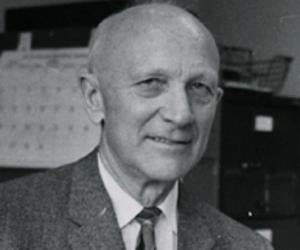
Neuroscientist Wilder Penfield redefined medical science with his innovative way of treating epilepsy patients through surgery. He would note down his patients’ responses when they would be conscious under local anesthesia. He also founded the Montreal Neurological Institute, but was unable to cure his sister’s brain cancer.
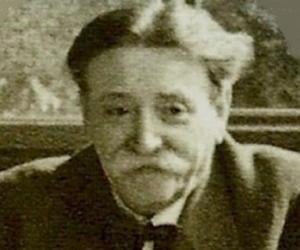
Jewish doctor Eduard Bloch began his career as a physician for the Austrian Army. He had later treated a young Adolf Hitler and his cancer-stricken mother, charging very little fees owing to their poor financial condition. This act that made Hitler grant Bloch special protection during the Nazi attack on Austria.
The founder of homeopathy, Samuel Hahnemann was a qualified physician but disapproved of medical practices such as bloodletting that were used back then. He thus formed his system of alternative medicine. The apathy of his fellow physicians in Leipzig forced him to move first to Köthen and then to Paris.
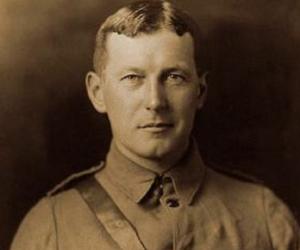
Best known for his iconic war poems such as In Flanders Fields, Canadian poet John McCrae was also an army physician. He was the first Canadian to serve as a consulting surgeon for the British Army and had earned the rank of Lieutenant Colonel in the Canadian Army.
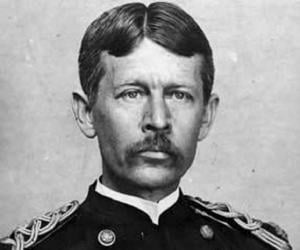
Walter Reed was a U.S. Army physician best remembered for leading a team which confirmed that yellow fever gets transmitted by a mosquito rather than by direct contact. His work went a long way in the fight against yellow fever.
Nobel Prize-winning British doctor Ronald Ross is best remembered for his pathbreaking work on malaria, which proved that the disease was caused by the Anopheles variant of mosquitoes. After his extensive research in India, he went back to London, where he was knighted. He also wrote poetry and songs.
Canadian thoracic surgeon Norman Bethune served as an army physician for the Canadian Army during World War I. He revolutionized medical science by introducing the concept of mobile blood-transfusion. A Communist Party of Canada member, he later served the Chinese army against Japan, becoming a revered name in China.
While he apprenticed as a cobbler and a barber in childhood, Santiago Ramón y Cajal later took up medicine inspired by his father, a professor of anatomy. Cajal’s study of the microscopic structure of the human brain later formed the basis of neuroscience and earned him a Nobel Prize.
Though she was married off at age 9 and had had a baby by 14, Anandi Gopal Joshi rose to become one of the first female doctors in India and the first Indian-origin woman to graduate with a medical degree in the US. Unfortunately, she died of tuberculosis shortly before her 22nd birthday.
Daniel Hale Williams was a general surgeon known for performing the first documented, successful pericardium surgery in the US in 1893. Born to interracial parents, he faced numerous struggles in his journey to become a physician. He later founded the first non-segregated hospital in the United States, Chicago's Provident Hospital. He also founded a nursing school for African Americans.
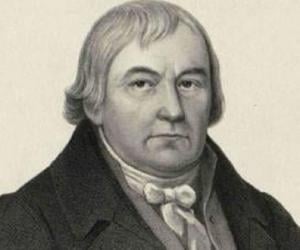
Though a doctor, Franz Mesmer studied the influence of astronomical bodies on the human body and on an invisible fluid inside it. He was a pioneer of animal magnetism, or mesmerism, which paved the path for modern-day hypnotism. Critics slammed his ideas and called him a fraud, too.
The first female doctor and surgeon of Britain, Elizabeth Garrett Anderson was initially denied admission to medical schools because of her gender and had thus started studying privately. Soon after joining the Marylebone Dispensary as an attendant, she contributed to the formation of the New Hospital for Women.
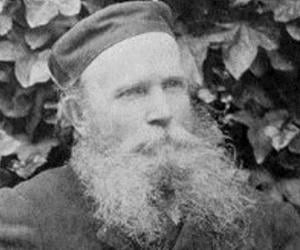
William Chester Minor was an army surgeon and lexicographical researcher. He studied at Yale Medical School and earned a medical degree with a specialization in comparative anatomy. He then became an army surgeon. He was later committed to a London psychiatric hospital for many years as he suffered from paranoid delusions. He became a lexicographical researcher while incarcerated.
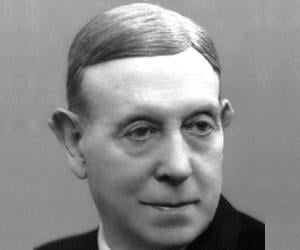
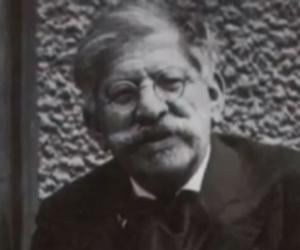
Born in Prussia, Magnus Hirschfeld had initially studied languages and had then earned a medical degree. He grew up to be a prominent sexologist and gay rights activist who referred to the LGBT community as the “third sex.” His one-of-a-kind sexology institute was later destroyed by the Nazis.
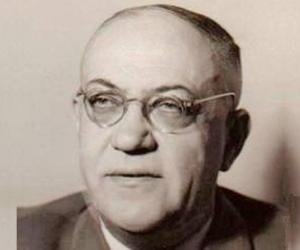
Popular with German elite for his unconventional treatment, Theodor Gilbert Morell came in contact with Adolf Hitler through Heinrich Hoffmann. Soon appointed the Chancellor’s personal physician, Morell remained with him for the last nine years of his life, helping him in his every day routine, receiving lucrative business contracts in return. Although arrested after the war, he was never convicted.
Havelock Ellis co-wrote the first English textbook on homosexuality. Initially a teacher in Australia, he later moved to London to study medicine. His seven-part Studies in the Psychology of Sex is a first-of-its-kind study on human sexuality. He also believed in eugenics and the importance of smell in sexual behavior.
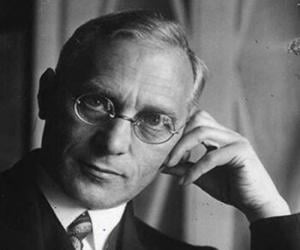
German-American physician Max Gerson was the proponent of the Gerson Therapy, which began as a diet-based treatment for migraine but ended up being used by him as a treatment for tuberculosis and cancer. Though Gerson died of pneumonia, there was an alternate theory that stated he had been murdered.
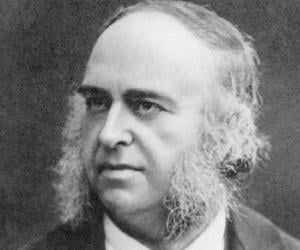
Willem Einthoven was a Dutch physiologist and physician whose invention of the electrocardiogram in 1895 earned him the prestigious Nobel Prize in Physiology or Medicine in 1924. He is also credited with theorizing the existence of Einthoven's triangle, which is named in his honor.
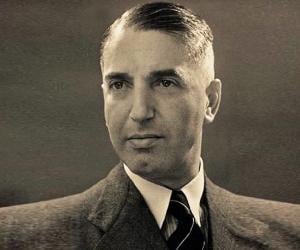
Known as Albert Dussel in Anne Frank’s diary, Fritz Pfeffer was a successful Jewish dentist who had hid along with Anne Frank and her family in the Secret Annex during the Nazi invasion of the Netherlands. Initially deported to Auschwitz-Birkenau, he later died at the Neuengamme concentration camp.
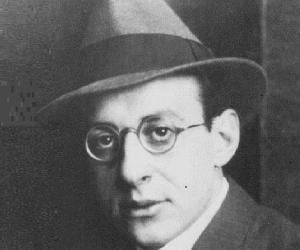
Fritz Perls initially fought in World War I, following which he treated brain injuries of soldiers. He was later drawn to Freudian psychoanalysis. During World War II, he was the psychiatrist for the South African military. His Gestalt therapy, which he co-created with his wife, Laura, redefined psychology.

Thomas Neill Cream, or the Lambeth Poisoner, was a Scottish-Canadian doctor who offered illegal abortions to sex workers in Chicago. He was later executing for poisoning scores of women and blackmailing others for their murders. It is believed he had claimed to be Jack the Ripper just before his execution.
Nobel Prize-winning cytologist and physician Camillo Golgi is remembered for his contribution to the study of the central nervous system. He revolutionized medical science with his staining technique and discoveries such as the Golgi cell, the Golgi tendon organ, and the Golgi apparatus, apart from his research on malaria.
